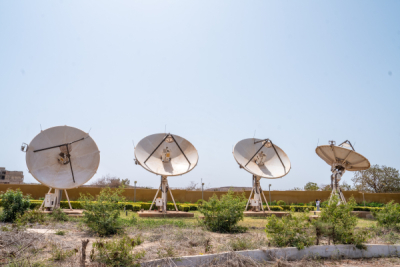AI is projected to contribute significantly to the global economy. Africa’s investment in AI ensures the continent can tap into this booming sector, increasing its global competitiveness and fostering local innovation.
Zambia is establishing a second Artificial Intelligence (AI) Centre of Excellence in Lusaka. Felix Mutati, Zambia’s Minister of Science and Technology, announced this on October 20 while speaking at a solar panel handover and AI training event for teachers at Katoba Secondary School in Chongwe District.
Mutati revealed that the Katoba Secondary School will be transformed into an AI hub to advance AI-assisted learning and technological skills across schools nationwide. He emphasized the potential of AI to revolutionize Zambia’s education system, saying "AI will help teachers prepare lesson plans more efficiently and track student progress," highlighting its ability to make education more responsive to students’ and teachers’ needs.
This AI center complements the one launched a month earlier at the University of Zambia in collaboration with Google, aimed at fostering tech-driven solutions to the country's social challenges. This new hub will function as a training ground, enabling other schools to adopt AI-driven educational tools.
The initiative is funded by Ecobank, with Managing Director Aina Moore emphasizing the importance of providing students with access to modern technology and sustainable energy sources. This is part of Zambia’s larger effort to integrate AI into its educational system, positioning the country as a leader in tech-enabled learning in Africa.
Additionally, Zambia’s move towards AI integration comes in the wake of scholarships awarded by the Czech Republic for Zambian professionals to study AI, as well as calls from the Chamber of Mines for AI to be included in the Technical Education, Vocational, and Entrepreneurship Training (TEVET) curriculum.
These efforts are crucial, given that Zambia’s education system faces quality and access issues. In Zambia, the allocation for Early Childhood Education (ECE) has consistently remained low, with only about 0.4% of the education budget allocated to it between 2016 and 2020, according to the Zambia Education 2024 Budget brief by UNICEF. This falls significantly short of the recommended 10% investment. As a result, many children are deprived of crucial early learning experiences, entering primary school underprepared and at a disadvantage for Grade 1, hindering their ability to catch up with their peers. AI-driven tools could significantly improve lesson planning, personalized learning, and the monitoring of student progress, helping to close these educational gaps.
Hikmatu Bilali



















